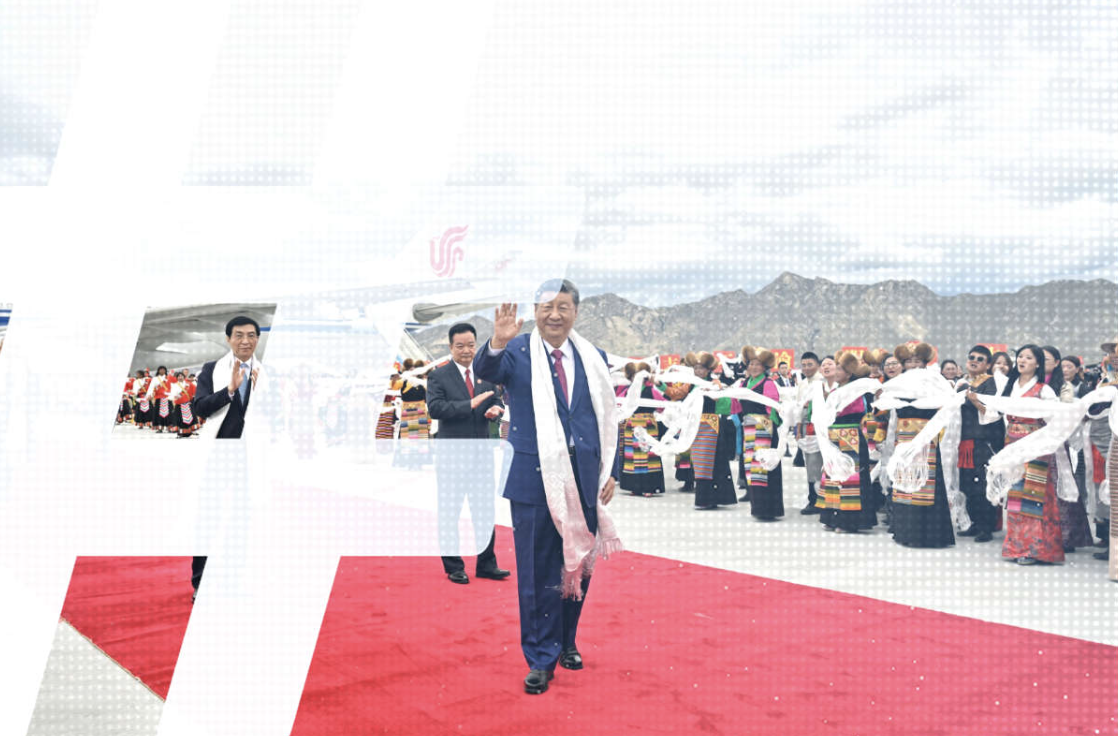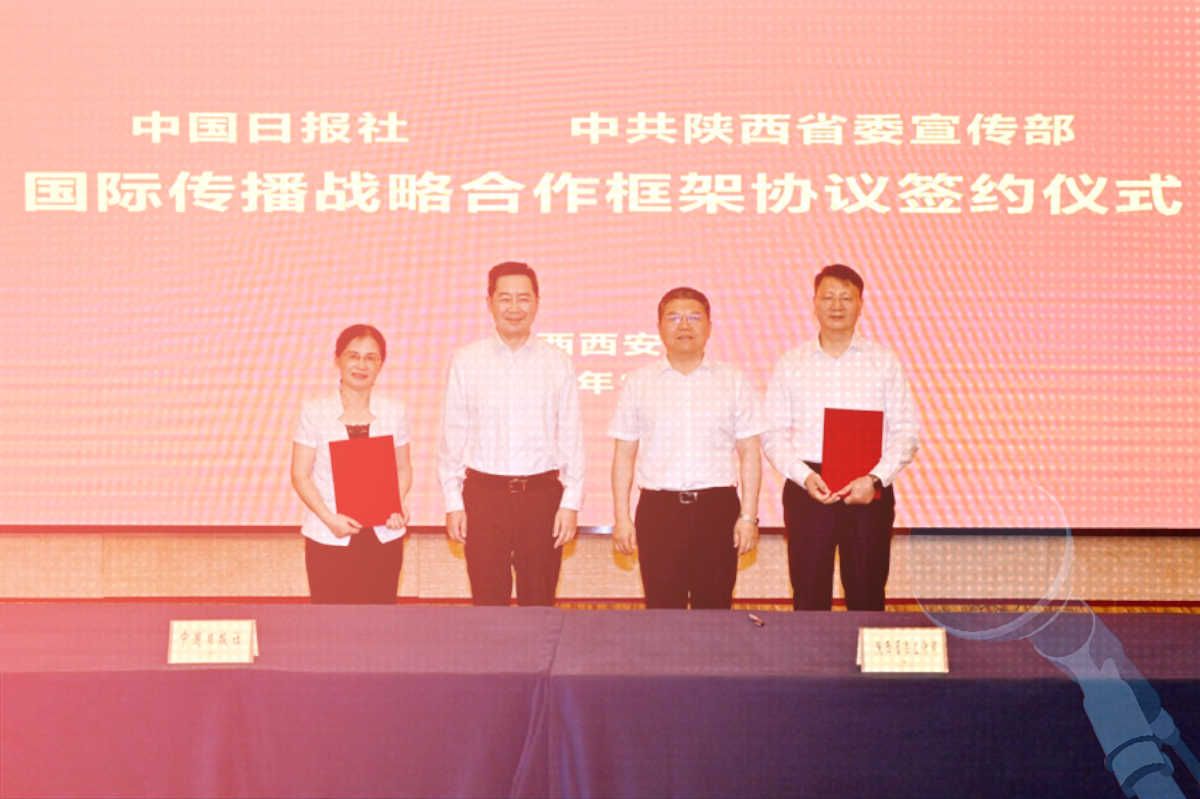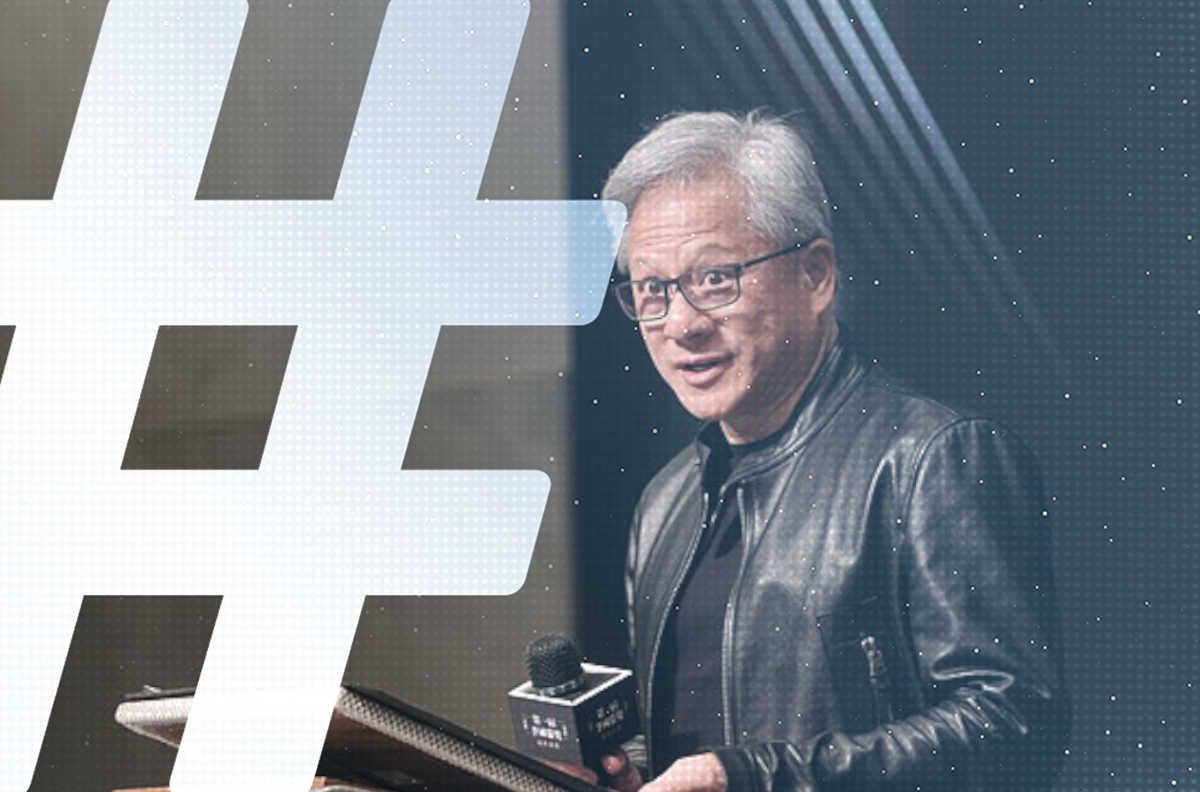Headlines and Hashtags
The riddle of the dancing elephant: modern governance for the “great nation” of China
Since the release more than a week ago of new legislation on government transparency in China, a number of domestic media have addressed its possible impact on a range of issues, such as anti-corruption, public health and environmental protection. In two separate editorials last week, 21st Century Business Herald (21世纪经济报道) addressed the national ordinance on release of government information (中华人民共和国政府信息公开条例) and similar legislation released one day later by China’s State Environmental Protection Administration (SEPA). The crux of both editorials was the need to push for institutional change to force accountability within China’s vast bureaucracy, and one editorial likened the process to IBM’s turnaround in the 1990s, saying China needed to become a “great nation” with the finesse of a “dancing elephant.”

A May 2 editorial called “Information Openness is the Foundation of Environmental Protection Work” in 21st Century Business Herald, said the date of formal release of the national transparency legislation, April 25, 2007, was a “turning point” for environmental protection in China, with SEPA’s provisional rules on information openness coming the next day. The legislation would “possibly”, it said, “provide a powerful weapon for the public in participating in the work of environmental protection, altering the severely imbalanced equation of power.” The “public’s right to know” (知情权), or zhi qing quan, said the editorial, would have to be upheld if environmental protection was to succeed in China.
But the editorial also expressed concern that the openness legislation released by SEPA, which is also to take effect from May 1, 2008, makes no allowances for administrative discipline of local environmental protection leaders who do not uphold their duties: “But what makes one worried is the fact that SEPA, which formulated these rules, does not have the power to directly penalize those local environmental protection officials who are not forthcoming with information, and local governments still have the power in all financing and personnel matters of those offices that are to carry out environmental management.”
The page four editorial in the May 1 issue of 21st Century Business Herald, written by journalist Guo Yukuan (郭宇宽), was called, “The Dancing Elephant and the Governance of a Great Nation”, and applied the corporate governance lessons of IBM under Lou Gerstner, the author of Can This Elephant Dance?, to the issue of governance reform in China [Link to Gerstner book on Amazon].
After recounting Gerstner’s story, Guo Yukuan had the following to say about resolving social and governance issues in China:
If we look carefully at the problems facing Gerstner at IBM, such as bureaucracy causing this massive corporate structure to lose its competitiveness, we see that these challenges exist in much the same way in our own country — it’s just that our “elephant” is a whole lot bigger than IBM. The process of teaching the elephant to dance is about revitalizing an organizational structure that has lost its vitality due to bureaucratism, and this requires rebuilding a healthy [governance] culture, improving backwards systems and selecting a top-notch team …
The rebuilding of a nation is a far tougher process than the building of a large-scale enterprise. But we should be heartened by the way Chinese leaders have been up to the task. In speeches in recent years, we can see that their attention is focused not on the “big” issues of national geography or overall economic growth, but rather on vitality and innovation, on the happiness and prosperity of the people …
The editorial then turned to a discussion of speech and information openness, invoking an editorial by national police spokesperson Wu Heping (武和平) on April 20, in which he argued for more openness with the media, saying, “If we allow the media to speak, the sky won’t fall” (China Youth Daily):
The development of the Internet means the grassroots [of society] have the right to speak (话语权利), and this has had an influence on policy. The most representative [example of this] is the public solicitation of proposals on healthcare reform, with the seventh proposal due to be out in May. The proposals are cooperative efforts by the Ministry of Health and research institutions including Peking University and Beijing Normal University. Every one of these proposals is sure to draw discussion … At a recent forum [on the proposal process], Renmin University of China professor Mao Shoulong (毛寿龙) commented that “the Ministry of Health has learned to take a backstage role, gathering together the views and opinions of the whole society. This is the only really smart way.”
They are not alone [in thinking this way]. On April 20 China Youth Daily ran and article called, “If we allow the media to speak, the sky won’t fall” by Public Security Bureau spokesperson We Heping. When I went online to have a look, there were not a few responses [to Wu’s article] … [some critical of his views, saying the tone was still ‘official’] … But if you look carefully at Mr. Wu’s article you can’t help but feel that he means well and is being constructive. For example, he says, “No matter whether you like it or not, whether you wish to or not, the supervision by public opinion of which media are the most representative form is a systematic design in line with the spirit of the constitution, and it is also a necessary aspect of representing the wishes of the public and promoting the general design of rule of law … If we see Wu Heping’s article as a breath of clear breeze, then the People’s Republic of China National Ordinance on Openness of Information recently signed by Premier Wen Jiabao gives us even more cause to believe that the building of transparent governance and responsibility to the people has already become a common goal of [our] leaders as a whole.
The problem, however, as the editorial carefully pointed out, is official respect for rule of law in China, the need for rule of law to triumph over the autocratic whims of party officials. Guo Yukuan refers first to a February 2006 court case in Zhejiang province (recently covered on China Central Television) in which the defendant was Zhejiang’s provincial governor. In that case, 12 peasants sued the provincial government, of which the governor is the highest representative, for requisition of their land for a development project without proper compensation or procedure, and were victorious.
Guo wrote that the Zhejiang court’s decision shows the “determination of Zhejiang province to build rule of law”. For the governor to have lost, said Guo, was in fact a major victory for the governor and the province as a whole, showing that “a government that allows its people no room to speak reason (无处讲理) is a government without face.” The editorial continued with a reference to the recent “nail house” case in the city of Chongqing:
The same principle applies to the “nail house affair” in Chongqing. For perhaps the first time ever, a citizen publicly opposed forced removal [from their home] under the gaze of the media and received relatively satisfactory compensation through a process of negotiation. This shows that the principles of operation in China are becoming clear-cut [i.e., rule of law versus behind-the-scenes power plays], and only under such clear-cut rules can the government and the people find unity . . . and the creative forces of a society be liberated. This closely resembles Gerstner’s arrival at IBM, when his first demand of secretaries there was that they don’t tell others “what Gerstner’s demands are”, but rather act according to the [company] system.
In these drops [of progress, such as the Zhejiang court case and the Chongqing “nail house affair”], even as there are so many things to leave us dissatisfied, so many demands that await satisfaction, we can yet feel the steps of progress, like the steps of an elephant that is learning to dance and is sure to make a few clumsy moves . . .
MORE SOURCES:
“How Lou Gerstner Got IBM To Dance“, Forbes, November 11, 2002
“Can This Elephant Dance?”, Time, February 8, 1988
“Hungry tiger, dancing elephant” (on IBM in India), The Economist, April 4, 2007
“IBM’s software group: can the elephant dance?”, Software Magazine, August 1996
“Government-funded Courts Find Ways to Deliver Justice“, Shanghai Daily, April 13, 2007
“A Step Toward Rule of Law” (about Zhejiang legal case), Asia Times Online, April 18, 2007
[Posted by David Bandurski, May 6, 2007, 6:07pm]




















